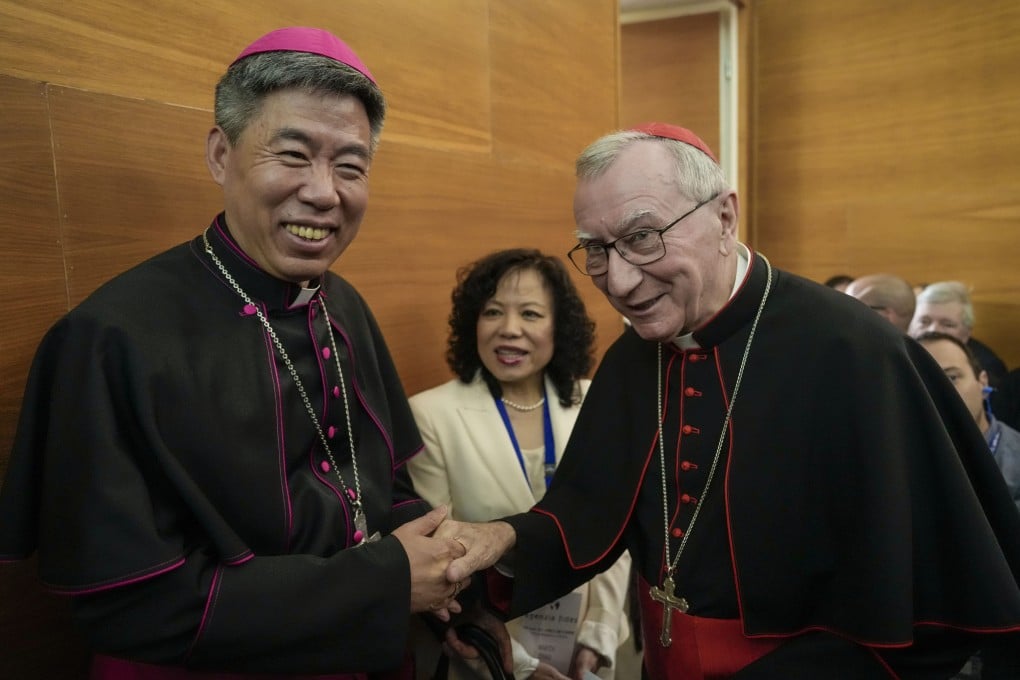Advertisement
Beijing hopes for ‘continuous improvement’ of Vatican ties after Pope’s deputy seeks ‘stable presence in China’
- Beijing’s pledge comes after Holy See hosts Shanghai bishop for Concilium Sinense centenary, offers to ‘renew and develop’ deal on appointing bishops
- Warming ties watched closely by Vatican’s formal ally Taiwan, which has accused Beijing of ‘repeatedly violating’ deal though details are still secret
Reading Time:2 minutes
Why you can trust SCMP
1

Beijing has expressed hopes of a “continuous improvement” of ties with the Vatican, a day after the Holy See said it hoped to set up a permanent office in mainland China, in developments watched closely by Taiwan.
The Vatican is among the dozen governments, mostly in Latin America and the Caribbean, that still maintain diplomatic relations with Taipei.
“We are willing to work together with the Vatican to promote the continuous improvement of China-Vatican relations,” Beijing’s foreign ministry spokesman Wang Wenbin said on Wednesday.
Advertisement
This came a day after Cardinal Pietro Parolin, the Vatican’s top diplomat, hosted Shanghai Bishop Joseph Shen Bin for a high-profile commemoration of the Concilium Sinense, a landmark meeting in Shanghai a century ago that affirmed the need for foreign missionaries in China to give way to local church leaders.
The concilium, the first and only Council of the Chinese Catholic Church, was held in Shanghai in May and June 1924.
Advertisement
The cardinal, who is a deputy to Pope Francis, expressed his hope of having “a stable presence in China” and “renewing and also developing” a provisional agreement with Beijing on the appointment of bishops, according to the Vatican’s news portal.
The twice-renewed deal was first struck in 2018 and is set to expire again in October. The terms have never been made public.
Advertisement
Select Voice
Choose your listening speed
Get through articles 2x faster
1.25x
250 WPM
Slow
Average
Fast
1.25x